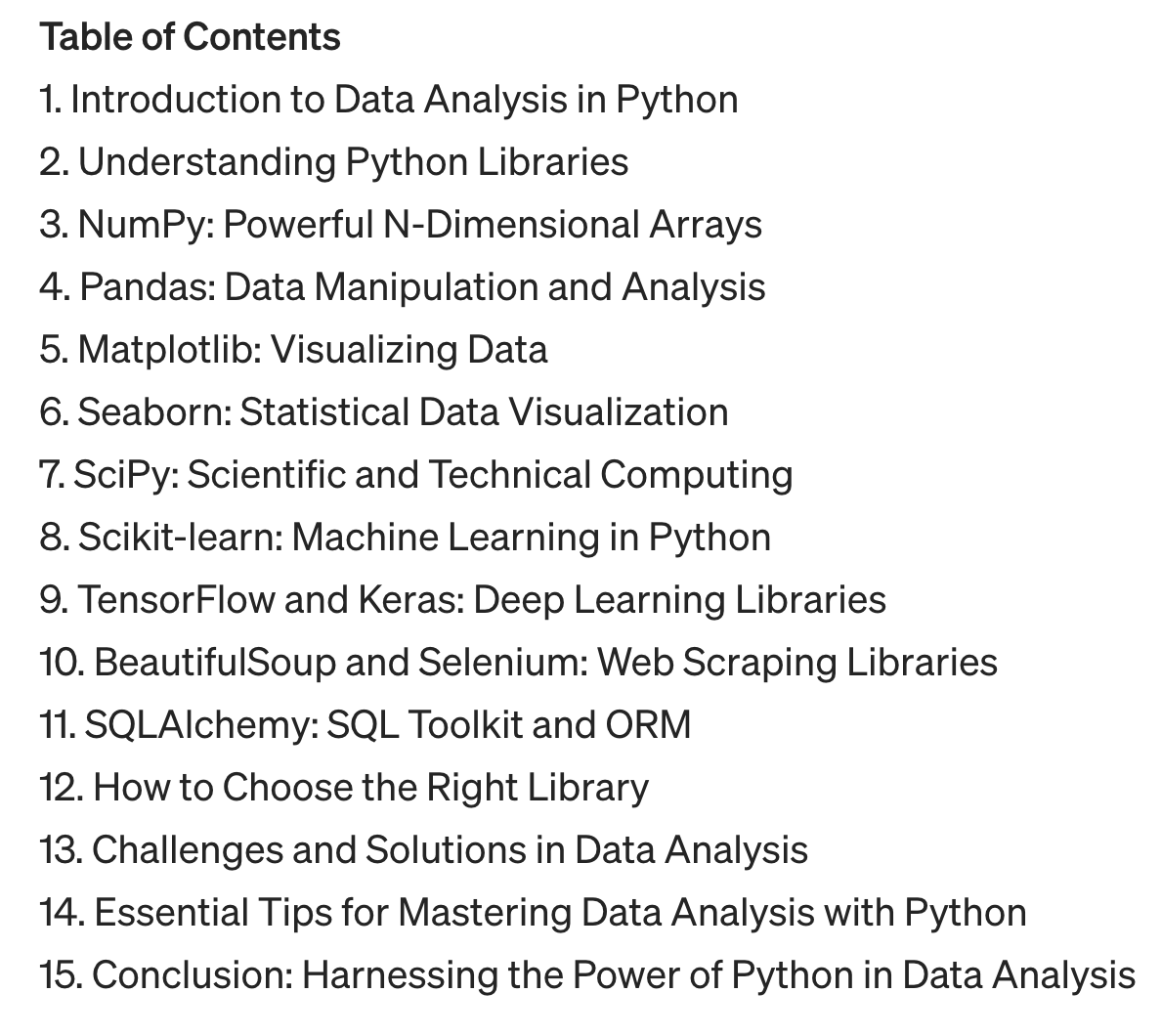Top Python Libraries You Should Know
For Data Analysis
In this newsletter, we'll explore seven crucial aspects of Python data analysis, breaking down the key components of each library to deepen your understanding and proficiency.
1. NumPy: Powerful N-Dimensional Arrays
NumPy is a cornerstone library for numerical computing in Python.
At its core are N-dimensional arrays, providing a versatile and efficient structure for manipulating large datasets and performing a wide array of mathematical operations.
2. Pandas: Data Manipulation and Analysis
Pandas is an indispensable tool for data manipulation and analysis.
Its central feature, the DataFrame, simplifies tasks such as cleaning, transforming, and analyzing data.
This library is essential for efficiently navigating through datasets in any data-centric project.
3. Matplotlib: Visualizing Data
Matplotlib is a powerful data visualization library.
It offers a rich set of options for creating insightful charts, plots, and graphs, enabling effective communication of complex data insights through visually compelling representations.
4. Scikit-learn: Machine Learning in Python
Scikit-learn is the go-to library for machine learning tasks in Python.
It provides a user-friendly interface for implementing a variety of machine learning models, making tasks such as classification, regression, clustering, and more accessible to data scientists.
5. TensorFlow and Keras: Deep Learning Libraries
TensorFlow and Keras are dynamic libraries at the forefront of deep learning.
TensorFlow provides a flexible platform for building and deploying machine learning models, while Keras simplifies the construction of neural networks.
Together, they form a powerful duo for those exploring the depths of artificial intelligence.
6. BeautifulSoup and Selenium: Web Scraping Libraries
BeautifulSoup and Selenium are indispensable for web scraping.
BeautifulSoup excels in parsing HTML and extracting information, while Selenium is a powerful tool for automating web interactions.
Together, they empower data analysts to collect real-time, dynamic data from websites.
7. SQLAlchemy: SQL Toolkit and ORM
SQLAlchemy seamlessly integrates Python with relational databases.
It allows users to interact with databases through Python code, offering a toolkit for SQL operations and a robust Object-Relational Mapping (ORM) system.
This library streamlines data storage and retrieval in analytical pipelines.
If you want to dive deeper, here is a more comprehensive reading. (You can read it for FREE.)
Have a great day!



